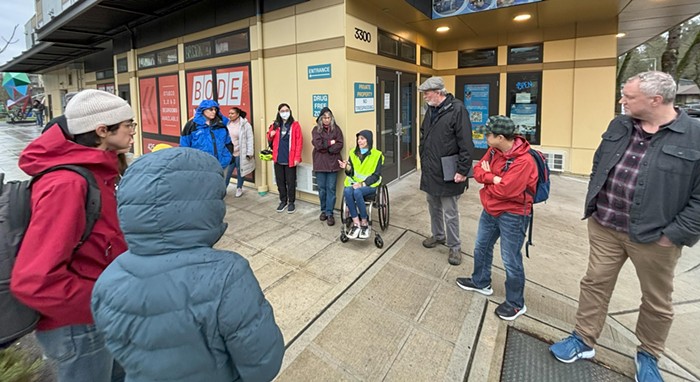
While our collective attention centers around the COVID-19 pandemic, another longstanding public health crisis continues and is worsening. This spring, King County saw an unprecedented spike in drug overdose deaths and the most deaths from fentanyl ever recorded. Seattle has also recently faced concentrated outbreaks of disease transmission from unsafe drug use.
Safe/supervised Consumption Spaces (SCS) are a vital and long-overdue part of a comprehensive response to preventing deaths and improving community health and safety.
SCS are health care and social service locations where people can consume drugs more safely, decreasing the negative health impacts of problematic drug use. Staff not only intervene in the event of an overdose, but also provide resources, including referrals to treatment. Decades of research shows that SCS improves the health and well-being of both individuals with substance use disorders and the larger community.
The support for SCS in Seattle is overwhelming. A 61% majority of Seattleites want the city to implement SCS, which would save both lives and taxpayer money. Seattle City Council voted to allocate $1.4 million to the project in 2018 and 2019, and the local Board of Health approved support for SCS in a 2017 resolution. Mayor Jenny Durkan has been vocal in her support and promised to implement SCS as part of her first campaign platform.
Despite overwhelming support and available funding since 2017, the city has yet to implement a plan to accomplish this goal. If not used, the $1.4 million allocation for SCS will expire by the end of the year. This would be a great injustice to the public. When she makes a commitment to SCS and doesn’t follow through, Mayor Durkan is not only showing a failure in leadership, but also withholding vital services for some of the most vulnerable people in our community.
SCS are life-saving for people who use drugs. There has never been a single overdose death in any of the 100+ sites worldwide in over 30 years of operation. Communities with SCS have lower rates of HIV and hepatitis C transmission, less needle litter, less public drug use, and less strain on the medical and criminal-legal systems. All of this leads to significant cost benefits. A local evaluation found that SCS would create community health benefits that would save the city $5,156,019 annually. Similarly, Vancouver B.C.’s SCS saves the city $6 million per year.
Although for some it may initially sound counterintuitive, SCS do not lead to increased drug use or crime, and people who use SCS are actually more likely to seek treatment for a substance use disorder because they have access to recovery services and are surrounded by trusted professionals who care about their well-being. In one study of over 1,000 injection drug users in Canada, referrals to treatment increased by 30% in the first year after an SCS opened in the community.
Because action was not taken sooner, it’s no longer feasible to open a stand-alone site, as originally planned, by the end of the year. Instead, we support Council Member Lisa Herbold’s current Budget Action to use these funds to implement safer consumption services at already existing health care and social service agencies, which is achievable with the existing contract with Public Health — Seattle & King County. By co-locating these services at sites that already house, shelter or serve marginalized people who use drugs, the funds can finally be used to implement life-saving interventions.
As nurses who work with the population that would use this service, we understand the immense need for SCS as part of a comprehensive approach to this crisis. People in our community—friends, family, and loved ones—are dying preventable deaths. SCS are a research-supported intervention that save lives, make significant improvements to public health and safety, and save taxpayer money. The evidence is there. The support is there. The money is there.
We thank Seattle City Councilmembers for their continued leadership, and call on Mayor Durkan to make good on her promise and be a local and national leader on SCS.
Mandy Sladky, RN, MSN, CARN is a public health nurse with training and experience treating patients with substance use disorders. She administers overdose prevention and response projects and is also a member of the local Yes to SCS Coalition.
Ramona Emerson, RN, BSN is a freelance writer and nurse with experience working with people with substance use disorders. Ramona is also a member of the local Yes to SCS Coalition.


















